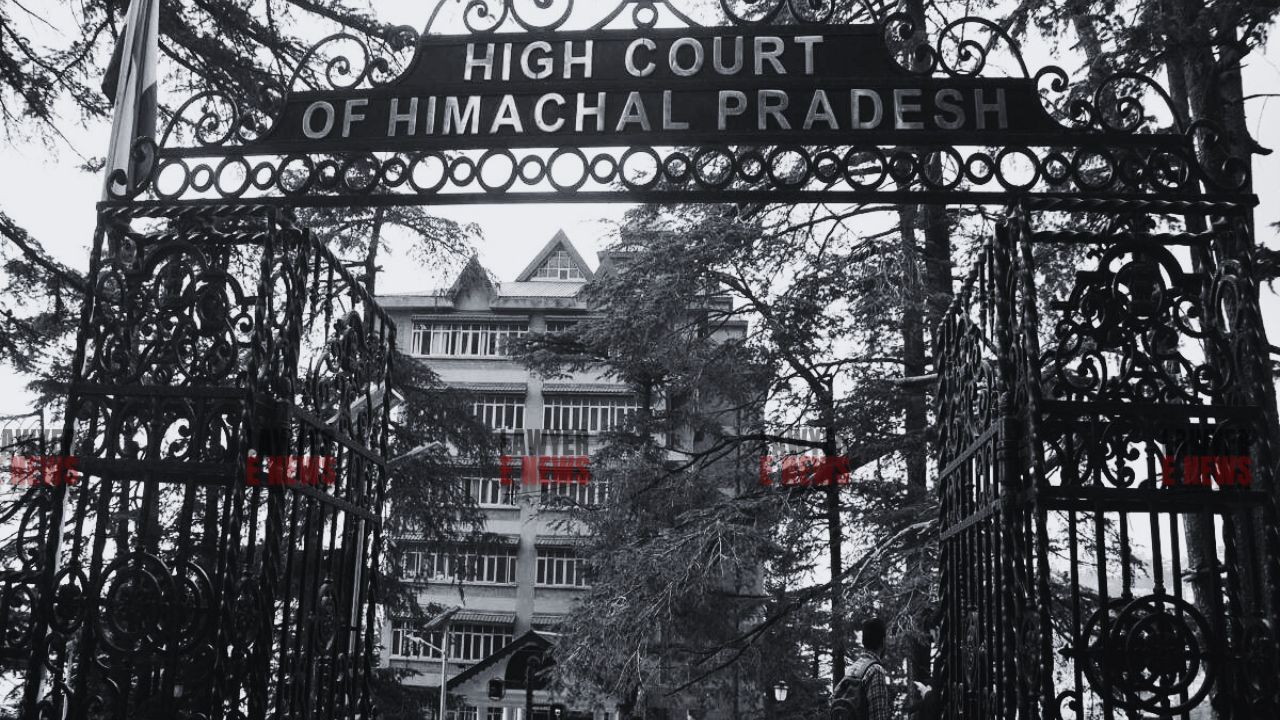-
by Admin
15 February 2026 5:35 AM



“No Infirmity in the Order of the Magistrate,” Says High Court on Petition Dismissal - Shimla, July 16, 2024: The High Court of Himachal Pradesh has upheld the dismissal of a petition filed under Section 133 of the Criminal Procedure Code (Cr.P.C.) concerning the obstruction of a motorable road. The judgment, delivered by Justice Rakesh Kainthla, emphasized the petitioner’s failure to produce evidence and the inherent improbability of the excuse given for the absence in court.
The petitioner, Dhayan Singh, filed a criminal revision petition challenging the dismissal of his earlier petition by the Sub Divisional Magistrate (SDM), Anni, District Kullu. The original petition sought to prevent the respondent, Jiya Lal, from obstructing a motorable road used by villagers by digging pits to plant apple trees. Dhayan Singh and Jiya Lal are brothers and the dispute revolved around the use of family land.
Justice Kainthla’s judgment provided a detailed account of the proceedings and the reasoning behind the decision:
Credibility of Excuse for Absence: The petitioner claimed that he and his counsel mistakenly noted the hearing date as September 22, 2023, instead of August 22, 2023. However, the court found this excuse inherently improbable. Justice Kainthla pointed out that the petitioner inquired about the case on September 20, 2023, which contradicted his claim of a mistaken date.
“If the date of hearing was noted as 22.09.2023, the petitioner was supposed to appear before the Court on 22.09.2023 and not make an enquiry on 20.09.2023,” stated Justice Kainthla.
Obligation to Produce Evidence: Under Section 138 of Cr.P.C., when the respondent appears and shows cause, the Magistrate is required to record evidence as in a summons case. The respondent had denied the allegations and asserted his ownership of the land.
The court emphasized, “When the law casts an obligation upon the Magistrate to take the evidence, after the respondent has shown cause, the petitioner was supposed to produce the evidence before the learned SDM.”
Failure to Appear and Present Evidence: The petitioner did not appear on the date fixed nor took any steps to summon witnesses. The court held that the absence and failure to produce evidence justified the SDM’s decision to dismiss the petition for non-prosecution.
Justice Kainthla remarked, “It was the duty of the petitioner to produce the evidence before the Court on the date fixed and if he had failed to do so, he could not blame anybody but himself.”
Conclusion and Implications
The High Court’s decision to uphold the dismissal underscores the importance of diligence and adherence to procedural requirements in legal proceedings. This judgment reinforces the statutory obligations under Sections 133 and 138 of Cr.P.C. and sends a clear message about the consequences of non-prosecution.
By affirming the SDM’s order, the High Court has highlighted the necessity for petitioners to actively participate in their cases and the improbability of excuses that lack evidential support. This decision is likely to influence future cases by emphasizing the need for meticulous attention to court procedures and timelines.
Date of Decision: July 16, 2024
